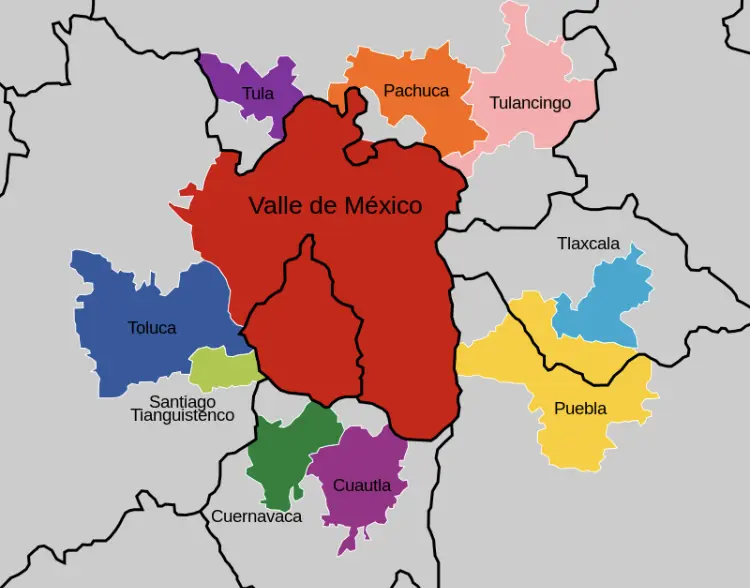In the end I don’t think internet users in rich powerful countries are the users most likely to benefit and invest their time into in the fediverse. They might be the ones with the most free time, money and privilege around computers which makes being on the leading edge of niche technologies far easier, but I don’t think using the fediverse vs commercial social media is thattt crucial of a difference for most (add a million qualifiers here except if you are black, queer, trans etc… I am talking in relative terms here) livimg inside the borders of colonial powers like the US, France, Germany etc…
Speaking as a hetero white dude who grew up with a decent amount of privilege the fediverse isn’t for the countless versions of me living within the borders of colonial powers…
It might have been programmers living within the borders of colonial powers that did most of the labor to create the fediverse, and most of the early users might have come from within colonial powers but I think it is important to recognize that the gift that the fediverse represents to the world is the capacity to empower people living outside the borders of colonial powers to own and run their own social networks instead of having some random Facebook employee who doesn’t have the time or basic knowledge of a country to make major decisions about what news accounts to moderate as dangerous spam and what to allow.
From a 30,000 foot view, speaking in broad terms and specific values and priorities, what do you think are the best strategies for flipping the script on the fediverse being mostly a tool used by people within the borders of colonial powers to one used by without and within?
I wonder about the capacities of fediverse software being useful as a compliment to HOT open street mapping type initiatives in the wake of disasters and just in general?
(Are server costs just generally cheaper/easier in colonial countries to run or is it purely a money and time thing? I don’t really know)
Cry about it
China entered the chat
ok fair state probs won’t allow it idk?
India entered the chat
Hell fucking just Mexico City and the surrounding metro/megalopolis not even including the rest of Mexico entered the chat

just a casual 32mil
Sao Paulo is here representing the rest of Brazil but the rest of Brazil couldn’t fit into the chat
Regarding specifically Brazil, I can answer that.
The most used pieces of Fediverse software are for microblogging (Mastodon, Misskey) and forum discussion (Lemmy). But when you look at the statistics for usage of social media platforms in Brazil, here’s what it shows:
YouTube (89%), Instagram (85%), Facebook (84%), TikTok (49%), Pinterest (37%), Twitter (36%), Linkedin (35%), Snapchat (15%), Twitch (9%), Reddit (6%), Tumblr (5%), Hello (3%), Flickr (2%), Quora (2%), WeChat (2%), MeWe (1%), others (7%).
Neither microblogging nor forum discussion are popular in Brazil; the top contenders are video services (YT, TT), and the Meta cancer tendrils (IG, FB) behaving as Orkut replacement goldfish. So the main Fediverse services are alternatives for things that, locally, are not overly common to begin with, when people have their “motherfucking caramel” doing funny shit they beeline for TT or FB.
Another factor that I think that reduces Fediverse usage in Brazil is Anglocentrism. Brazilians are mostly monolingual; the exceptions are typically 1) from a colonial background, or 2) highly educated, and only (2) applies here. For most people in Brazil, English content is the same as nothing, or as “the skwerlficashun! throovy! afdsjkfdsa!”.
That backtracks into your OP. I believe that Fediverse success requires
- diversification of the platforms widely used and available in the Fediverse
- better ways to handle language that reduce the “I don’t speak it so it’s noise” issue
Even with that in mind my city has a Mastodon server. I often lurk there because I’m a verbose fuck, not suited for microblogging; but it’s comfy.
Brazillian here. Out biggest Mastodon instance (ursal.zone) is locally hosted, but is behind Cloudflare and appears as US in this list. Most of Brazilian instances are foreign hosted because of cost. This table means nothing in terms of fediverse penetration on Brazil. We have a huge population, and even as most of Brazilian are monolingual, the minority of bilinguals are millions that can read English. Even monolinguals are doing just fine using Brazilian instances, even if foreign hosted.
The leaders of countries such as the PRC, Modi’s India, Putin’s Russia, ans Iran might not like the idea of decentralization.
Indeed, they might not like the internet itself.
looks out my windows the corporate fascist hellscape of the US
Ommm yeah I genuinely not saying this to detract from the seriousness of oppression within the countries you are speaking of but…. nobody with real power in the US likes the internet either?
Did you see what Elon Musk did to Twitter? It wasn’t less a business acquisition than a public execution of an entity that subverted the ability of state sponsored propaganda to be effective all over the world (including specifically… Saudi Arabia and the countries it has business interests in). I mean I don’t know if Elon knows this or not, I really don’t care. The people that gave him the money to pay for the execution on the other hand I am more convinced knew exactly what the general impact of their “investment” was going to be.
What I find quite annoying is how people created these monopolies.
50 years ago, there were 3 (arguably 4) American car companies—still a de facto oligopoly, but 3 is better than 1. The Japanese and VW added to it.
Today we essentially have one search portal, Google; one social network site, Facebook; one video-hosting site, YouTube; and one micro-blogging site, Twitter/X.
If people spent perhaps 1/10th of their micro-blogging time on other sites, Twitter might not have been as attractive to Musk and his backers, but they chose ease over choice, and now they’re wailing over what he’s doing with it.
I’m off-topic.
I mostly agree with your statement. Maybe Amazon likes the internet, but probably most others in big business in the US don’t: it might account a bit for the shitty websites of many of them.
I think you’re overthinking this, and extrapolating limited data way too far.
For one, of course historically rich countries are going to be hosting more technology. Tech is expensive, and less developed countries are called that because they’re less developed, which includes electricity grids, internet, economic power, and so on.
Another issue is that just because a Mastodon server is hosted in a particular country, doesn’t mean only people in or from that country can make an account there. Sure, there are some servers that want to keep their communities specific to their local area, but the vast majority have no restrictions. Anyone from anywhere can sign up.
If you’re trying to figure out how to make it so historically poor countries have the most servers instead, you’re going to have to figure out how to fund and manage infrastructure expansion.
It feels like you’re coming at this with the assumption of “every country has the resources to spin up hundreds of social media servers, but they’re just not interested”, which is kind of a weird conclusion to come to after recognizing the historical impact of colonialism and the privilege differences it’s led to.




